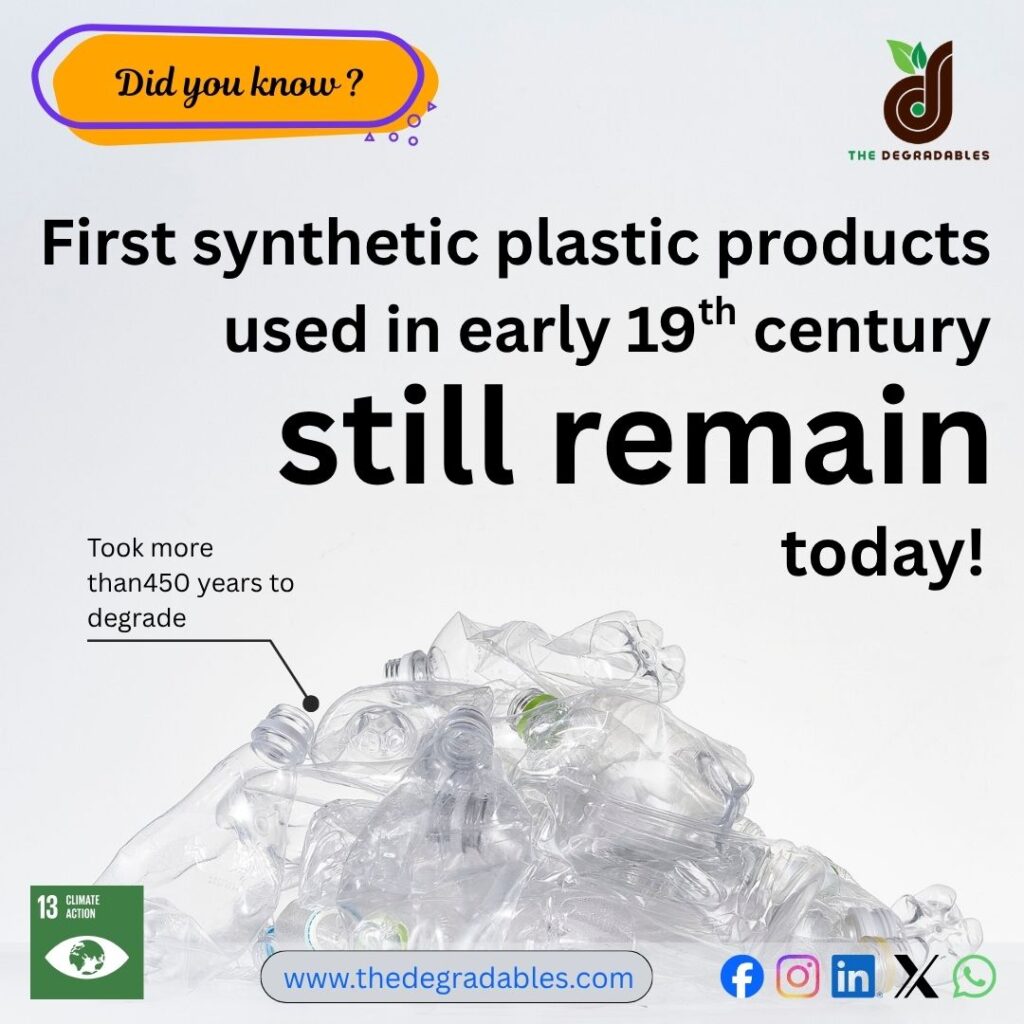Did you know that the first synthetic plastic products, introduced in the early 19th century, are still lingering in our environment today? Pioneered around 1839 with the invention of celluloid by John Wesley Hyatt, these plastics were revolutionary but designed to last far too long. Modern research shows that plastics like these, made from fossil fuels, take 500 to 1,000 years to break down, leaving behind a legacy of over 8 million metric tons of plastic waste entering oceans annually. This persistence contributes to microplastic pollution, harming wildlife and ecosystems. For those passionate about a cleaner planet, understanding this enduring impact highlights the urgent need for alternatives that don’t outlive generations.
The longevity of early synthetic plastics poses a stark contrast to today’s innovative solutions, with studies from 2024 and 2025 revealing their environmental toll. These plastics, such as Bakelite from the early 1900s, release greenhouse gases like methane as they slowly degrade in landfills, adding to the 1.8 billion tons of CO2-equivalent emissions yearly from plastic production. Unlike their predecessors, biodegradable products offer a way forward by breaking down naturally within months to years, reducing long-term pollution. This shift not only cuts carbon footprints by up to 68% but also minimizes the 79% of plastic waste that accumulates in landfills, making sustainable options a compelling choice for a healthier world.
Imagine a future where packaging doesn’t haunt the earth for centuries—biodegradable products are paving that path. Research indicates that replacing traditional plastics with eco-friendly alternatives could divert millions of tons of waste, supporting biodiversity and soil health through composting. The benefits extend to reducing reliance on fossil fuels, aligning with global sustainability goals. For those eager to make a difference, exploring innovative biodegradable products can transform daily choices into acts of environmental care. Check out www.thedegradables.com to discover solutions that break the cycle of plastic persistence and embrace a greener tomorrow.

